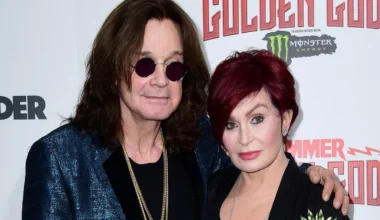For most people, puberty is a cut-and-dry affair. Your voice drops and, bar the occasional embarrassing squeaky crack-up, your new dulcet timbre is established. Thereafter, the only way is deeper. However, for the Bee Gees, their disco trousers seemed to well and truly ram their scrotums firmly back into their groins, and their vocals regressed to the screech of excitable school children.
That is not to besmirch their mirrorball period, I’m no humbug, but it does dominate their legacy and relegates much of their early masterpieces to the realm of the unexplored ‘early stuff’ relics. And that is a great loss to many record collections because they’ve got a beauteous bounty of pop hits more akin to the Flying Burrito Brothers than Chic.
Typifying this is the masterpiece ‘To Love Somebody’. Since its release in 1967, the track is perhaps the most symbolic representation of the Bee Gees disco BC years. Championed by none other than Nick Cave as one of the greatest love songs of all time, the track is a wonderful example of musical duende.
And for those unaware of that Spanish word, Frederico Garcia Lorca described it as exalted emotion unearthed from within, “a mysterious force that everyone feels and no philosopher has explained. The roots that cling to the mire from which comes the very substance of art.” That might sound grandiose, but as the song asserts, what is there to be grandiose about if not love?
On this occasion, that love was for their then-manager, the gay icon Robert Stigwood. “It was for Robert,” Barry Gibb told Mojo in 2001. “I say that unabashedly. He asked me to write a song for him, personally. It was written in New York and played to Otis [Redding], but, personally, it was for Robert.” While the band had Redding in mind as the potential singer for the track, he sadly died before he had the chance, but it was Stigwood who served as the inspiration.
“He meant a great deal to me,” Barry Gibb continued. “I don’t think it was a homosexual affection but a tremendous admiration for this man’s abilities and gifts.” Whether platonic or otherwise, it is clear from the level of the profundity of the song that Stigwood clearly meant a great deal to the band. He also meant a great deal to many others too.
The Australian-born London-based music mogul, film producer, and all-around impresario became a very empowering figure. When he died in 2016, aged 81, his Guardian obituary read: “Stigwood owned the record label that issued his artists’ albums and film soundtracks, and he also controlled publishing rights – not since Hollywood’s golden days had so much power and wealth been concentrated in the hands of one mogul.”
Although his homosexuality was hidden from the wider public, he utilised his power to make the entertainment industry a more progressive place. As the writer Darryl W Bullock told The Irish Times, he allowed “gay people to hide in plain sight. It was a type of camouflage, a form of acceptability. You could be of that world and be flamboyant, more ostentatious, and because there are so many LGBTQ people in that world, it’s much more forgiving.”
During his reign, he managed not only the Bee Gees but also Cream, and Andy Gibb, while also fronting the film productions of Grease and Saturday Night Fever, and Hair and Jesus Christ Superstar in the theatrical world.






